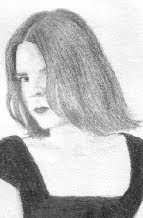 Early in 1915 the 2nd Light Horse Brigade of the Australian Army quartered at a training camp in Egypt. Their dreams of riding into Berlin were shattered by a decision to dismount them and send them as infantry reinforcements to drive the Turks off the Gallipoli Peninsula.
Early in 1915 the 2nd Light Horse Brigade of the Australian Army quartered at a training camp in Egypt. Their dreams of riding into Berlin were shattered by a decision to dismount them and send them as infantry reinforcements to drive the Turks off the Gallipoli Peninsula.
They landed into a nightmare worse than anything they had imagined. The land which looked so lovely from the sea was precarious and rugged, scorching in summer and freezing in winter. Weeks of work went into even the smallest advances. And the battlefield was ruled by the Turkish snipers, who brought death in an instant without warning. The only thing for the Allies to do was to play their game; organise snipers of their own. And the best they had was Billy Sing, who notched up 201 confirmed kills - and had generals queueing up to take a turn as his observer - before encountering the waterlogged miseries of the Western Front and a life of hard-drinking poverty back home in the outback.
You know your browser’s spellchecker isn’t Australian when it puts a squiggly red line under “Gallipoli”....
What better way to spend the Anzac Day long weekend than by reading a book about the Anzacs? (Yes, it took me that long to get around to finishing the review....) I’d say I’d make it a tradition but I’m not really into twentieth-century history, of which fact I was made embarrassingly aware. I now realise that I know more about the Wars of the Roses, or the efforts of the British to oust Napoleon, than about World War I. I knew there was something called The Nek at Gallipoli - THE iconic battlefield of Australian military history - but couldn’t have said what it was. (Feeling a tad guilty now....)
For those who don’t know, Gallipoli is kind of our version of the Charge of the Light Brigade: A heroic effort that was doomed from the outset and has become the stuff of legend. (Also the title of a classic film of which I was constantly reminded while reading.) The history is bookended by scenes of a present-day pilgrimage to the battlefield, beautifully described and bumping Gallipoli up several positions on my “places to see” list. (Though not while the Anzac Day crowds are there!) This ties the past to the present and shows how powerful a hold the place still has on the national consciousness.
There is something of a shortage of information to be dealt with; it’s not until some weeks into the Gallipoli campaign that Billy Sing really emerges from the background. It’s not known, for instance, how someone who was obviously half-Chinese got accepted into what was then a relentlessly white army. But the author works well with what is available to produce a clear picture of how his early life in Queensland served as a fine training ground for a future sniper. (There’s also, sadly, a lack of information about his mother; a woman who could, in those times, travel halfway round the world alone, head into Queensland’s answer to the Wild West, and marry a Chinese man must have been truly remarkable.)
Hamilton makes liberal use of block quotations from primary sources, which felt a little like cheating until I got used to it, and then to appreciate it for the picture it gave of the times through the eyes of those who were there. There’s only one surviving piece of writing by Billy himself, which is unfortunate as he had a talent for description. And among the quotes that preface the chapters are some reach-for-the-Kleenex epitaphs from the Shell Green cemetery on the Peninsula. Sometimes, though, it made for gruesome reading (but at least I added “deliquescent” to my vocabulary ... no, you don’t want to know what that referred to).
It’s also chilling, depicting as it does the contradiction of a popular man who loved to make people laugh, yet who became an assassin so ruthless even his own side called him “the Murderer”. Did the war turn Billy into someone sufficiently cold-blooded as to deem taking other human lives “as easy as shooting wallabies”? Or did it simply provide an opportunity to the killer already lurking inside him?
Rating: B+

















I just saw something yesterday about a mini series that is being made about Billy Sing, although there is a bit of a controversy as the actor who has been chosen to play the main character isn't Asian.
ReplyDeleteSounds like an interesting read.
I read about in the newspaper, and made a mental note not to watch the miniseries! If you're going to tell a true story, I think you've got an obligation to stick to the facts.
ReplyDelete